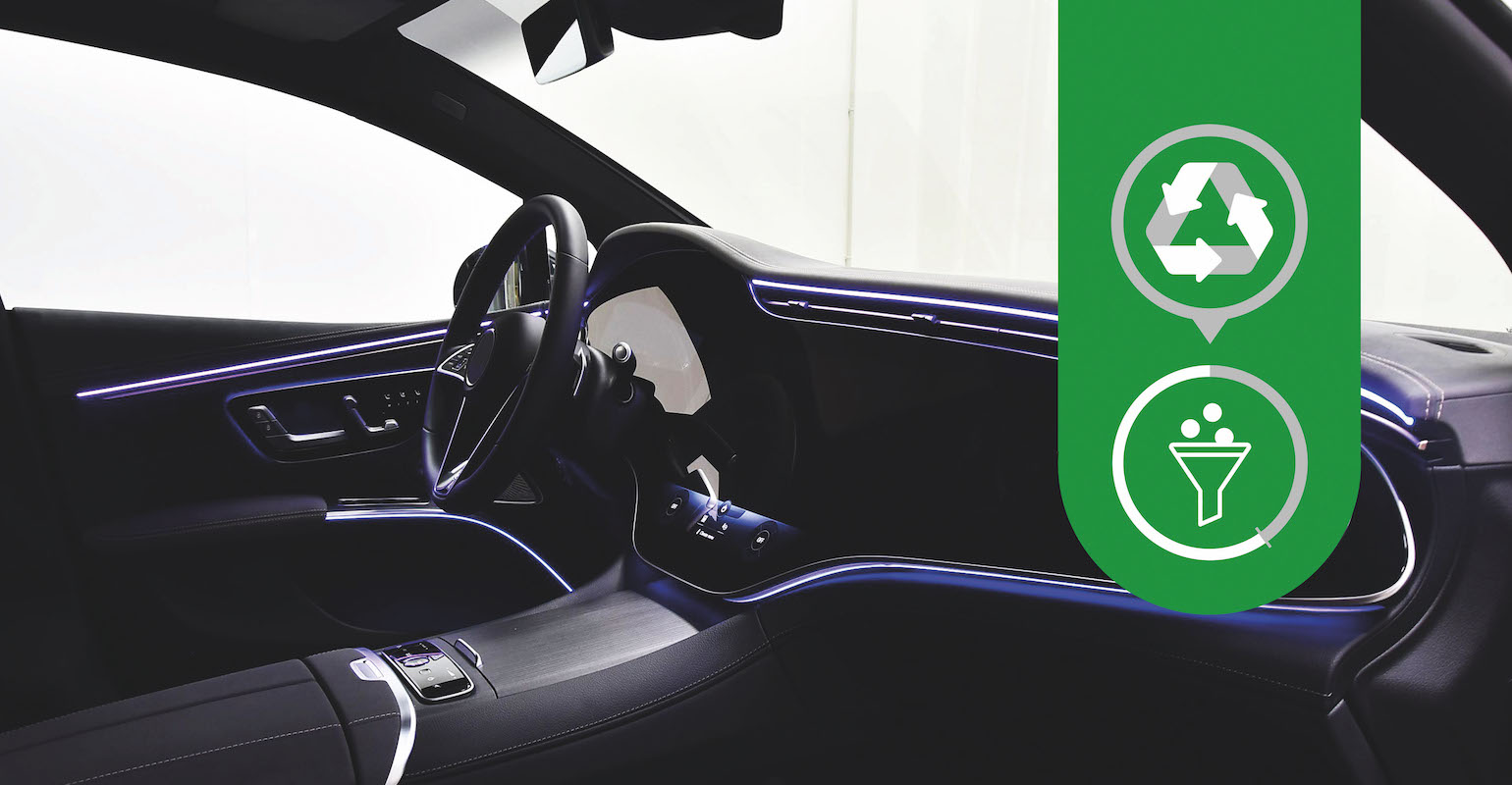
Post-Industrial Recyclate TPE Grades Approved for Auto Interiors

With a recycling content of up to 38%, interior post-industrial recycled (PIR) thermoplastic elastomer (TPE) grades from Kraiburg TPE provide the automotive market with a reliable and sustainable alternative to virgin materials. The supplier is expanding its portfolio for OEMs and their parts suppliers, while significantly contributing to meeting recycling rates and offering support in reducing the carbon footprint of products for automotive interiors.
The PIR raw material is derived from the waste generated by other companies’ manufacturing processes for plastic products. Kraiburg TPE uses it to advance sustainable automotive interior applications. Possible applications include anti-slip mats, floor mats, soft components in cup holders, as well as fixation elements. The series is also suitable for applications requiring a hardness range between 60 and 90 Shore A (depending on the recycled content).
Strict OEM requirements for emission and odor are fulfilled and the material can be combined either with polypropylene in co-injection molding or used as a single soft component solution. In addition, PIR TPE provides abrasion resistance and flowability combined with low density to keep the part weight at a minimum.
“We’re expanding our product range to include interior PIR TPE in response to the sustainability issues raised by OEMs. We’re sure our customers will benefit substantially from the option of using TPEs based on recycled raw materials for automotive interiors,” said Matthias Michl, Head of Automotive Application Development at Kraiburg TPE.
Customers can also receive the necessary product information on carbon footprint (PCF). The PCF quantifies the CO2 footprint, in this case within the cradle-to-gate system boundaries. The global warming potential (GWP) of a product is calculated, indicating how much the product contributes to global warming from raw material extraction to the product manufacturer’s gate. Producers require this value to assess the carbon footprint of their components, and, ultimately, of the entire vehicle. Kraiburg TPE claims full transparency in assessing the PCF and calculates the values according to DIN EN ISO 14067 and DIN EN ISO 14044, following the GHG Protocol. Detailed information on the assessment is provided.
The product is available for customers in the EMEA sales region. Kraiburg TPE is currently working on local solutions for the APAC markets and North America. Michl sums up this portfolio enhancement by noting that “the new solutions ‘universal PCR TPE’ and ‘Interior PIR TPE,’ as well as the option of providing customers with individual PCF values for their purchases, enables us to position ourselves as a reliable and local TPE contact and to offer full service for our products.”

Leave a Reply